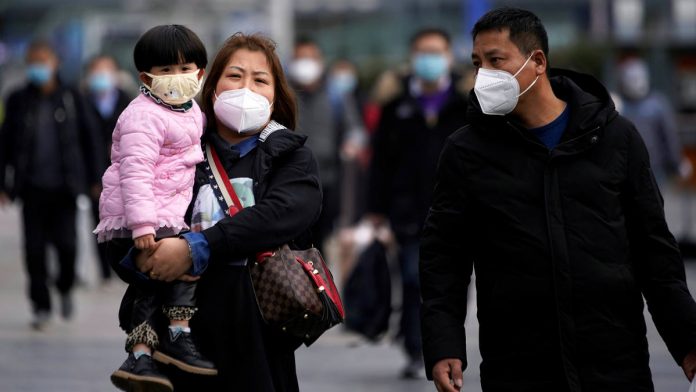Second COVID-19 wave forces new travel curbs around the globe
Sydney (Reuters) – Nations in Asia imposed new restrictions on Monday, while an abrupt British quarantine on travellers from Spain threw Europe’s vaunted summer reopening into disarray, as the world confronted the prospect of a second wave of COVID-19 infections.
In the United States, where infection rates have climbed since June, President Donald Trump’s national security adviser Robert O’Brien became the most senior official to test positive. The White House said Trump had not interacted with him in days and was not at risk.
Surges were reported in a number of countries previously singled out as places where the virus was under control.
Australia recorded a record daily rise. Vietnam locked down the city of Danang, forcing tens of thousands of visitors to evacuate. Mainland China confirmed the most locally transmitted cases since early March. Papua New Guinea shut its borders.
Hong Kong banned gatherings of more than two people, closed down restaurant dining and made face masks mandatory in public.
A surge in infections in Spain prompted Britain to order all travellers from there to quarantine for two weeks, at a stroke undoing months of preparation for Europe’s reopening to tourism.
The World Health Organization (WHO) said travel restrictions could not be the answer for the long term, and countries had to do more to halt the spread by adopting proven strategies such as social distancing and wearing masks.
“It is going to be almost impossible for individual countries to keep their borders shut for the foreseeable future. Economies have to open up, people have to work, trade has to resume,” WHO emergencies programme director Mike Ryan said.
“What is clear is pressure on the virus pushes the numbers down. Release that pressure and cases creep back up.”
“Spain Is Safe”
Officials in some of the European and Asian countries where the virus is spreading again say new outbreaks will not be as bad as the original waves that hit earlier this year, and can be contained with local measures rather than nationwide shutdowns.
Officials in Spain – where cases rose by 6,000 over the weekend – were stunned by Britain’s sudden quarantine move.
“Spain is safe, it is safe for Spaniards, it is safe for tourists,” Foreign Minister Arancha Gonzalez Laya told reporters.
“Not only is it unjust but it’s also totally illogical and lacking in rigour,” Spain’s main hotel association CEHAT said, as hotels offered to pay for coronavirus tests.
Airlines and travel businesses that held on to survive the first wave now worry that an aborted reopening could be fatal.
Europe’s biggest airline, Ryanair, cut its annual passenger target by a quarter on Monday and warned a second wave of COVID-19 infections could lower that further.
Europe has yet to lift bans on travellers from many countries, including the United States, where Trump encouraged states in the spring to reopen quickly after a lockdown, and many are now setting infection records.
Baseball In Jeopardy
A pandemic-shortened North American baseball season, launched last week in front of empty seats, suddenly appeared in jeopardy after 12 players and two coaches on the Miami Marlins tested positive while on the road in Philadelphia. Monday’s games were cancelled in both cities.
Florida in particular has been hard hit this month, with 10,000 new cases a day becoming the norm across the state. Hospitals have called in extra staff as workers become sick.
“In 10 years of medicine I never had to put another nurse on life support, I never had to worry about my co-workers dying,” said Kevin Cho Tipton, a critical care nurse practitioner who works at one of Miami’s largest public hospitals. “It’s been emotionally very challenging, physically very challenging.”
Emergency U.S. federal unemployment benefits enacted in response to the pandemic expire this week. Republicans in Congress were expected to unveil a proposal on Monday to extend them at a reduced rate, setting the stage for a showdown with Democrats seeking a more generous stimulus bill.
The Washington Post reported that the Republican plan would initially cut the federal payment to unemployed workers by $400 a week. Reuters was not immediately able to confirm that report.
In China, which managed to squelch local transmission through firm lockdowns after the virus first emerged in the central city of Wuhan late last year, a new surge has been driven by infections in the far western region of Xinjiang.
In the northeast, Liaoning province reported a fifth straight day of new infections and Jilin province reported two new cases, its first since late May.
Australian authorities who have imposed a six-week lockdown in parts of the southeastern state of Victoria said it could last longer after the country’s highest daily increase in infections.
In Japan, the government said it would urge business leaders to ramp up anti-virus measures such as staggered shifts, and aimed to see rates of telecommuting return to levels achieved during an earlier state of emergency.
Vietnam is evacuating 80,000 people, mostly local tourists, from Danang after three residents tested positive at the weekend. Until Saturday, Vietnam had reported no community infections since April.
Papua New Guinea halted entry for travellers from Monday, except those arriving by air, as it tightens curbs against infections that have more than doubled over the past week.



